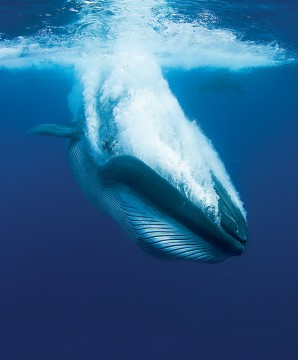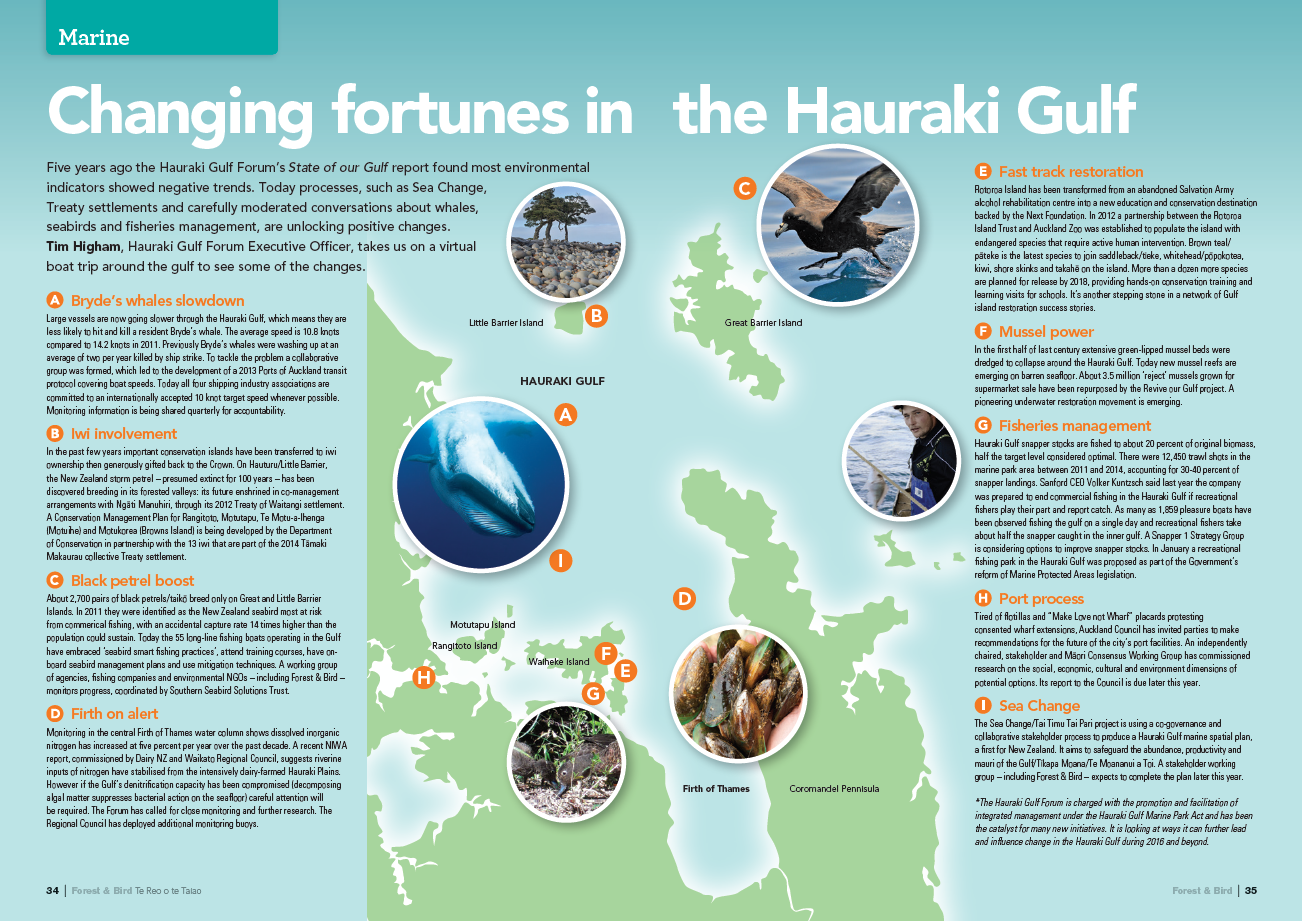Wriggle Room
In Forest and Bird’s Autumn issue, I shared nine examples of where transformative change is happening around the Hauraki Gulf (Tīkapa Moana).
Ships are slowing for whales, fishers are seabird smart, mussel reefs are being restored, vibrant partnerships are emerging from treaty settlements, farmers are examining nitrogen loads and dynamics, entrepreneurial trusts are fast tracking restoration, and the future of fishing, the port and the Hauraki Gulf Marine Park itself are under consideration.

Bryde’s whale (Photo by Doug Perrine)
The common denominator is they result from conversations between people who don’t naturally talk with each other.
The room bristled three years ago when we invited scientists, environmental NGOs, mana whenua, regulators, shipping and port executives to sit down together to talk about the frequency of ship-struck whales (two per year).
Legal advice, economic analysis, alternative science, favoured ministers were sought and battle lines drawn.
Three years later the same group is succeeding wildly; just one whale has been lost since a voluntary transit protocol was introduced. Latest monitoring shows average speed for the quarter is 10.8 knots, down from 14.2 and heading toward the international target of 10.
How? Through asking questions and finding answers together about whale behaviour, their distribution and vulnerability to ship speed, ideal transit speeds, alternative mitigation options and operational constraints.
Untenable positions were withdrawn, creative solutions explored, and accommodations made.
American marine mammal scientist Dr Dave Wiley, who recently visited New Zealand on an Ian Axford Fellowship exchange, advocates shared research enquiry. His TEDx talk on “social complexity and scientific validity” shows how scientific reports prepared by sector interests are given little credence by traditionally opposed groups.
Finding solutions together in real time builds trust and ambition. Changing viewpoints and conceding positions can be liberating.
The opposite dynamic emerges when we fall back on rote prescriptions or look to protect and extend use rights via lobbying and legal means.
Potential allies retreat into corners, opportunities diminish and costs mount. Businesses find they don’t have a social licence to operate. Conservation advocates burn out. Regulators procrastinate.
The unique mandate given to the Hauraki Gulf Forum through the Hauraki Gulf Marine Park Act enabled it to point to a pattern of failing natural systems and institutional system failure in successive State of our Gulf reports. They have created something of a truth and reconciliation dynamic.
Now, around the Gulf, inclusive and open-ended conversations are finding common ground, mandated and supported by regulatory agencies and, importantly, mana whenua.
Wide ranging groups are discovering they have an interest – and a part to play – in protecting and enhancing the special marine environment of the Gulf.
The Mātauranga Māori contribution of mana whenua is adding to knowledge and the drive for change.
Given space to examine and reconfigure operating models, surprising innovation and accommodation can be found. Every player can ratchet up and benefit from the performance of others. A race to the top is replacing a drive to the bottom.
Taking conversations off-line, using carefully moderated and inclusive processes, is creating wriggle room and quickly becoming the new game in town.

